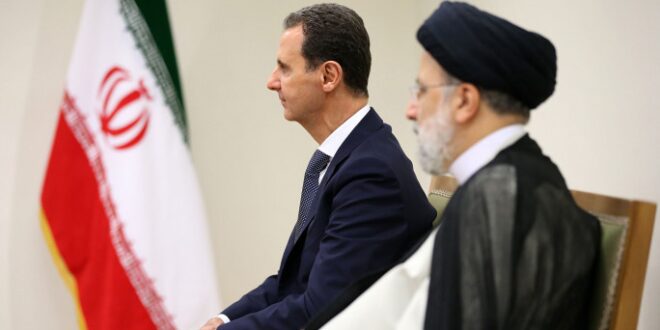Earlier this month, Syrian President Bashar al-Assad paid a surprise visit to Tehran, where he met with Supreme Leader Ayatollah Ali Khamenei and President Ebrahim Raisi.
This was Assad’s second visit to Iran since Syria’s civil war broke out in 2011. In Tehran, Khamenei told the Syrian president that Damascus had achieved “victory in an international war” and that Iran seeks stronger bilateral relations with Syria.
“Today’s Syria is not Syria before the war, even though there was no destruction back then, but now the respect and credibility of Syria is much more and all look to it as a power,” said Iran’s Supreme Leader, who also used this meeting to blast Arab states which have formalized diplomatic relations with Israel.
In a reference to the US, Israel, and possibly Turkey, Raisi told Assad that foreign occupying forces and their mercenaries in Syria “must be forced out”.
“As Russia turns its attention increasingly toward Ukraine […] Tehran is ready to seize the advantage, both militarily on the ground as well as politically and diplomatically”
According to Khamenei’s website, Assad praised Tehran for its regional foreign policy, stating that “Iran’s path is a correct and fundamental path” and that his country’s relationship with Iran has thwarted the Israelis from dominating the Middle East.
One day after Assad came to Tehran, Iran’s chief diplomat Hossein Amir-Abdollahian emphasized that the visit’s “message” is that Iranian-Syrian relations remain “excellent and unshakeable”.
It is important to read this visit within the context of international and regional developments, namely the Russian-Ukrainian war and Arab efforts led by the United Arab Emirates (UAE) to bring Assad’s government back into the Arab world’s diplomatic fold.
Both have potentially significant implications for the future of Syria, as well as Iran’s role and interests in the country.
By visiting Tehran, Assad was likely intending to emphasize how much he values the Iranians for all they have done in Syria since 2012. Damascus will continue counting on the Islamic Republic for support, especially with changes in Russia’s position in Syria resulting from the war in Ukraine.
Ultimately, this visit to Iran should be seen as a sobering moment for those who have previously argued that Gulf Cooperation Council (GCC) members could be on the verge of creating distance between Damascus and Tehran.
 Eurasia Press & News
Eurasia Press & News




